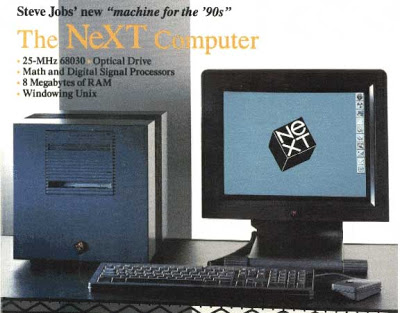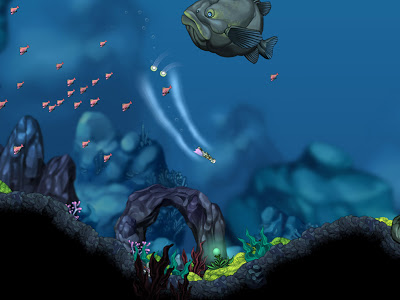This post has not been edited by the GamesBeat staff. Opinions by GamesBeat community writers do not necessarily reflect those of the staff.

Mac gamers are a sad bunch. Every few years someone or something comes along that is going to transform the Mac gaming landscape. But nothing happens. Promise after promise has been broken, and few good things have emerged. So you can excuse the cynics who say gaming on the Mac will never amount to anything. Most look elsewhere for their gaming fix, either unsatisfied with or unaware of the paltry offerings on display, especially given the oftentimes-long delays and poor performance compared to other platforms. It seems like the Mac just isn't on anyone's radar. But, as has been the case in looking at the past and present of gaming on the Mac, the issue is more complicated than it at first seems.
 We saw in part 2 that the biggest obstacle to the growth of gaming on the Mac is Apple. For years they have alternately held the platform back and pushed it forward — but mostly held it back. It seems like they just don't care enough about winning over even a small portion of the gamer demographic (assuming there is such a thing). If gaming on the Mac is to grow a sizeable audience, Apple must be involved. They are pushing gaming on iPhone/iPod Touch and now also the iPad, but have appeared reluctant to throw a bone to the platform that just a few years ago was their bread and butter, and which remains integral to the company's short-term future.
We saw in part 2 that the biggest obstacle to the growth of gaming on the Mac is Apple. For years they have alternately held the platform back and pushed it forward — but mostly held it back. It seems like they just don't care enough about winning over even a small portion of the gamer demographic (assuming there is such a thing). If gaming on the Mac is to grow a sizeable audience, Apple must be involved. They are pushing gaming on iPhone/iPod Touch and now also the iPad, but have appeared reluctant to throw a bone to the platform that just a few years ago was their bread and butter, and which remains integral to the company's short-term future.
But it's not just Apple's support that is needed for gaming on the Mac to survive and grow. Developers and publishers need to be interested and proactive in approaching the Mac as a gaming platform. Right now, though, very few are putting in any clear effort. Electronic Arts and Ubisoft have made somewhat token attempts to satiate a Mac audience with Cider ports of a number of their recent games, which tend to lag behind the PC release despite the apparent ease of Cider porting.
 Similarly, the gaming audience appears apathetic about the Mac platform. Console and PC gamers consistently mock that there are no games on the Mac, while Mac gamers are either used to being treated like second-class citizens or quick to distance themselves from the platform they once loved — they game on consoles or use boot camp to play PC games. Then there's the related problem of Mac games not being advertised. Some Mac fans are unaware which commercial games have reached their platform because they just aren't promoted in the mainstream. Anywhere. At all.
Similarly, the gaming audience appears apathetic about the Mac platform. Console and PC gamers consistently mock that there are no games on the Mac, while Mac gamers are either used to being treated like second-class citizens or quick to distance themselves from the platform they once loved — they game on consoles or use boot camp to play PC games. Then there's the related problem of Mac games not being advertised. Some Mac fans are unaware which commercial games have reached their platform because they just aren't promoted in the mainstream. Anywhere. At all.
How do you prove the Mac is a viable gaming platform when each of the groups that matters is waiting for every other group to jump in first? If Apple sees gaming on the Mac taking off they will throw their weight behind it, just like they did with the iPhone. But developers will not be interested until Apple cleans up their act and improves support for the tools and technologies essential to modern game development. And publishers won't be taking many risks on the Mac until they see either big advertising support from Apple or high sales numbers. Meanwhile, consumers will largely ignore the Mac as a video game platform until it has big games, day-and-date releases, and sufficient marketing to make them aware these Mac versions exist. Everyone is getting their toes wet, but no-one is diving in. Someone has to go first. But who?
Dedicated porting companies are certainly not the solution. They can — and hopefully will — continue to fill as many of the gaps in the Mac games lineup as possible, with ports of major titles that don't otherwise get a Mac release, in addition to publishing duty on any original Mac games that are suited to commercial release. But they can't materialise a strong, vibrant platform. They can barely even drive growth — that has to come from the bigger players, who have the mind-share and budget to draw widespread (and ongoing) attention. And they might not last long enough to be around, if and when this happens. MacSoft's eerie silence could be indicative of their demise. Aspyr are increasingly looking to PC and console game publishing. And Feral, Virtual Programming, and the smaller porting houses don't exactly bring in big money.

Should the rumoured Mac version of Steam come to fruition, it may help foster awareness that there are great games getting Mac releases, but only if developers and/or publishers sign on. It could, instead, hammer home the poor state of gaming on the Mac compared to the PC, which isn't exactly making headlines for positive reasons (see DRM, piracy, declining sales, and several other problems, most of which are attached to the Games For Windows Live debacle). Regardless of how it plays out, though, Steam on the Mac would be a great step in improving public awareness and availability of Mac games. Just seeing a label such as "also on Mac" on a game listed on a service as well-known as Steam could significantly boost awareness, if not sales. It won't make much of a difference, though, if the Mac market continues to be ignored by the people making games.
There was once a time when the Mac was at the forefront of games design and technology. While it lacked the installed-base or developer support to lead the market in sales, there was scarcely a genre that wasn't represented by some unique and interesting game on the Mac. And some genres were even being created on this so-called "computer for the rest of us." The point-and-click interface that swept through the adventure genre in the 1990s originated on the Mac. One of the first ever polygonal first-person-perspective games — The Colony — was made on a Mac. CD-ROM killer-app and adventure genre-killer Myst began its life on the Mac. And so did meta-puzzle game The Fool's Errand.
Those days were short-lived, though. The Mac never took off as a gaming platform, so few used it for development (although Steve Jobs' spin-off NeXT computer was favoured by some developers, including John Carmack of id Software). That may one day change, if developers can put up with Apple's apparent disinterest. Given the improvements in middle-ware and cross-platform development tools and engines like Unity, Torque, Unreal, and the upcoming id Tech 5, this will hopefully become easier in the next few years. At the grass-roots level, at least, it already is, especially with iPhone and iPad development tied to the Mac platform — so developers double- or triple-dipping in iPhone, console, and PC/Mac would be well-advised to do the bulk of their game-making on the Mac.

It's the games that have a strong artistic message, or are like works of art in their own right, that are perhaps most likely to be developed primarily on and for the Mac in future. Afterall, the Mac is the de facto platform for creative professionals in many fields outside of the video game industry. It's been proven that the low installed-base is irrelevant for these types of games. They sell big numbers on the Mac; sometimes even beating the PC. And the Mac audience is the one that makes the most noise.
If a small indie game gets noticed by someone on the Mac side of games coverage, chances are that it will soon be mentioned on nearly every website that covers Mac games — even more mainstream outlets like MacWorld and news sites like Inside Mac Games. From there it gets noticed by sites that reach into other demographics, including IGN, 1UP, GameSpot, MTV, Kotaku, Ars Technica, and even The New York Times. By being available for the Mac, media coverage for indie games can increase by an order of magnitude. And the people making indie games are realising this. Expect to see more indie games appearing on the Mac in the next few years, perhaps with some even developed on a Mac.

But such games are unlikely to drive widespread adoption and prestige for gaming on the Mac, as a grass-roots movement would need to take on phenomenal proportions to make a meaningful difference. This comes down to the simple fact that current Mac market share is little more than 10% worldwide, even with the most flattering read of the data. Admittedly, that's still a big number of users, but how many people with at least a passing interest in buying games have even heard of indie games, let alone care they exist?
Continued on Page 2
Real gains in the state of gaming on the Mac require backing from the big players. It needs advertising campaigns from Apple, in cooperation with big publishers like EA, Activision-Blizzard, and Ubisoft. Day-and-date releases of major titles must be extended to the Mac. Likewise for a selection of important titles from more-niche genres like real-time-strategy and simulation.
TransGaming's Cider technology is likely to play an important role in not only keeping the platform alive, but also helping gaming on the Mac advance. As performance and reliability of Cider ports approach that of native ports, the dedicated porting companies are likely to suffer — perhaps even die. But if these ports can also get timely release and marketing alongside the other platforms they will only serve to improve the state of the Mac gaming market. The deciding factors are quantity and quality. More games need to be made available on the Mac to prove that it's a viable platform. And people would vastly prefer to buy games for their favourite platform, but they are not going to be happy about buying an inferior port.

The Mac's biggest draw as a future competitor to PC gaming lies in its ease of use. You don't need to worry about driver updates, lengthy installs or digital rights management systems that install what amounts to spyware on user computers. Most of the time you just copy the game folder onto your hard drive (via drag and drop), run/open the executable file and start playing. That's even easier (and faster) than some console game installs. The Mac just needs to break out of that perpetual cycle where the lack of games leads to a lack of interest or respect, which keeps the number of games from increasing.
Now that the shelf-space problem is increasingly irrelevant — thanks to the rise of long-tail distribution models and online stores – it falls to the developers to make the games, Apple (and the publishers) to support and advertise them, and the online services to make them easy to find. Steam on the Mac would of course help in that regard, but more must be done. Telltale Games recently dedicated most of their website front-page to indicating that they are adding Mac support to their games. The platform would benefit greatly if others took a similar approach.

But perhaps the most effective means of getting attention to games on the Mac would be if Apple offered to sell them directly. Not just through their online store, which, to an extent, they already do, but through the iTunes Store. Such a distribution method would not be without problems, particularly due to Apple's strict policing of everything that is sold through the portal. But it would get a digital distribution service for Mac games (and other software) on to every Mac computer. And, assuming that developers would sign on, it would collect everything in one place.
Apple has pushed iPhone gaming hard in the past year or so, hiring game development experts, and highlighting some of the top games in recent advertisements. There is a chance that the success of gaming on the iPhone will (or already has) change the company's approach to gaming on the Mac. If this is indeed the case, gaming on the Mac should gain some additional momentum (one way or another), which may just be enough to turn the tide of developer and public perception. But this can only go on so long as the situation is seen to be improving. If Apple improves support for gaming on the Mac, they must throw their full weight behind it; otherwise history is likely to repeat itself.

Remember when Halo was going to bring Mac games to the mainstream?
That was 1999.
If Tomorrow Never Comes
Apple is no longer a computer company. Their primary revenue streams are mobile devices like the iPod and iPhone, and sales from the iTunes Store. Portable Macs far outsell desktop Macs, but are shamed by sales of Apple's smaller (more mobile) hardware offerings. Mac market share is increasing, but the metrics of everyday computing are changing. Fewer people are playing games on their computer that aren't small online flash games. Even if we can get past the perception problems it might be too late. Perhaps there'll be a strong market for highly-polished indie games. Perhaps not. Even with all the progress made since the Intel switch, the future looks pretty bleak for gaming on the Mac. Unless both Apple and the game makers do something big. And soon.
If tomorrow never comes
Will she know how much I loved her
Did I try in every way to show her every day That she's my only one
And if my time on earth were through
And she must face this world without me
Is the love I gave her in the past
Gonna be enough to last
If tomorrow never comes
Previous entries:
Part 1: The Rocky History of Gaming on the Mac
Part 2: The Commercial Reality of Today
Closing lyrics are from the song 'If Tomorrow Never Comes', written by Garth Brooks and Kent Blazy.
Originally published on MacScene.
